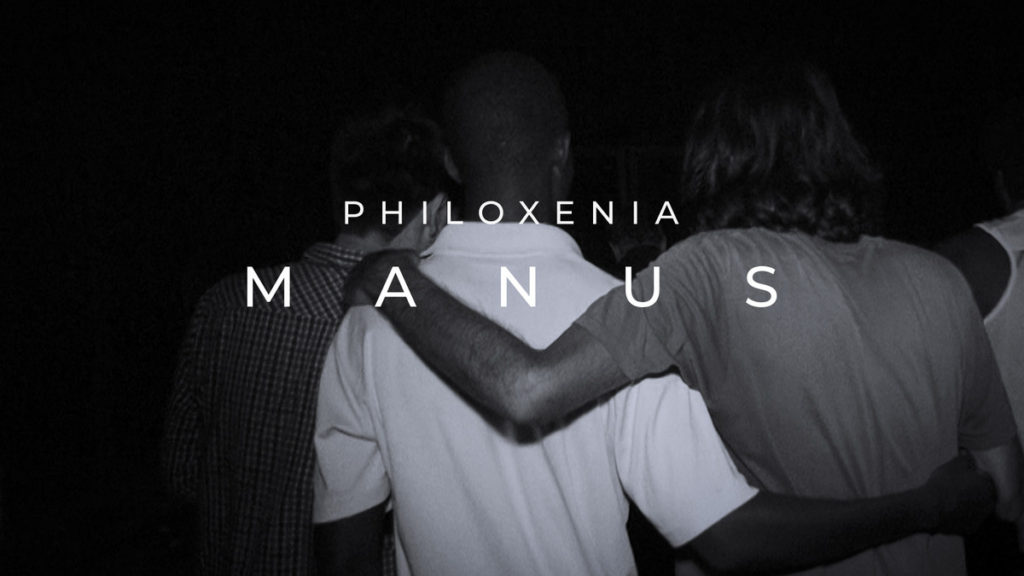
Angus McDonald is an established Australian contemporary visual artist who has been exhibiting across Australia and internationally for 25 years. He began filmmaking in 2017 as part of social advocacy project he created called Howling Eagle, which promotes the adoption of humanitarian approaches to support those seeking asylum.
His 2019 documentary, MANUS, is his first standalone film. It was awarded Best Documentary at the 2019 St. Kilda Film Festival, qualifying for automatic eligibility for selection for the 2020 Academy Awards in the Documentary Short category. He talks to us about his vision…
Related Story : Angus McDonald’s Documentary of Refugees Imprisoned on Manus Island
indieactivity : Give a background of your personal experience with the story, writing and production?
Angus McDonald : MANUS came out of a film project I began two years ago called Howling Eagle which aimed to raise awareness about the refugee protection and asylum issue with the Australian public. Its primary objective was to advocate for the adoption of more humanitarian approaches to support those who arrive here fleeing war and persecution. I’ve been a visual artist for 25 years, primarily a painter. Film was a completely new area for me, but I decided to use film when I began the project because it was the best medium to reach the greatest number of people on the issue.
After travelling and filming in several countries overseas that had experienced massive refugee arrivals in recent years, including Lebanon, Jordan and Greece, we began concentrating on the situation here in Australia. My particular focus was on those who had arrived by boat and had been transferred offshore by the Australian Federal Government to Manus Island in Papua New Guinea and Nauru. We released much of the film content we had created free to the public online via short films and interviews.
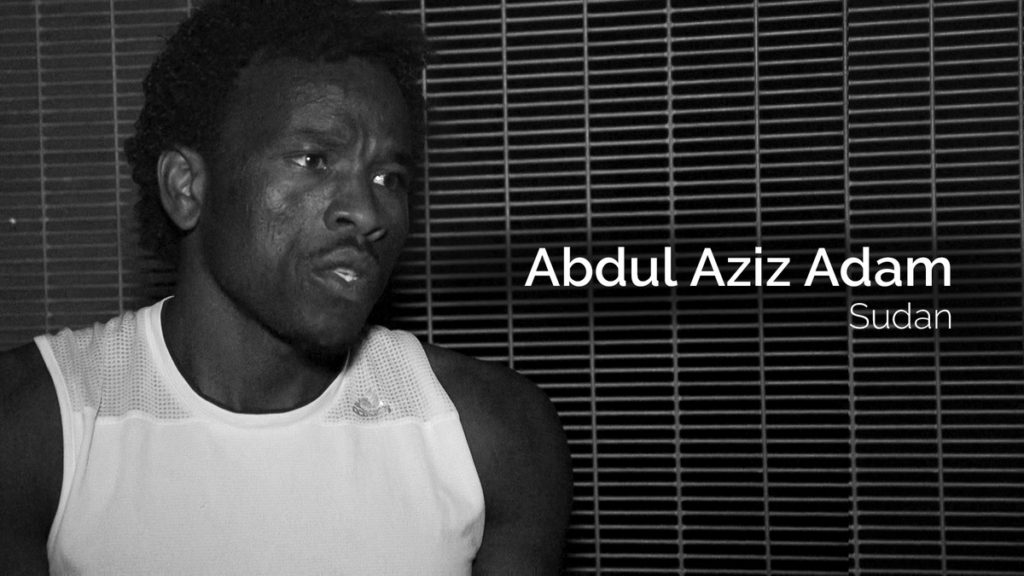
Eventually this led to an award-winning journalist called Olivia Rousset contacting me. Olivia had travelled secretly to Manus Island with two others at the end of 2017 filming the situation facing the refugees and asylum seekers detained there. She asked me whether I would be willing to create a film from the footage to get it out there and offered it to me. I agreed to take the task on and decided to craft a standalone short documentary film which was the genesis for MANUS. It was my first standalone film and the first I have entered into festival competition.
Rousset shot the footage over a single night in the detention centre at a very significant time in the recent history of Australia’s offshore processing policy. The centre had just been closed by the PNG supreme court and the men ordered to move to three new centres 20 kms away. Hundreds of men refused to leave, demanding their freedom after four and a half years of indefinite detention. This resulted in a stand-off that lasted three weeks in which time their food, fresh water and medical supplies were cut off by the authorities. Tensions were high.
I decided to focus entirely on the testimonials of the men themselves in the film because this happens so rarely in the reporting and filmmaking around this issue. Keeping the personal stories of the men invisible allows their situation to be completely dehumanised and this has always suited the government just fine because it has enabled them to perpetuate the cruelty of this policy with relatively small opposition from the general public. I wanted to change that by revealing the men as individuals and let them tell their own stories in their own words.
I created the narrative by piecing together disparate sections of the dialogue from a range of the men interviewed. This was challenging because we had to find a general story path that underlay the pieces of seemingly disparate dialogue. I think we got there eventually. The film also includes at the end a poem by Kurdish refugee, Behrouz Boochani voiced by him specifically for the film in his native Farsi. It was important to have a more ephemeral sequence like this at the conclusion because it heightened the emotion and emphasized the deep sense of humanity that is at the heart of the situation facing those on Manus Island.
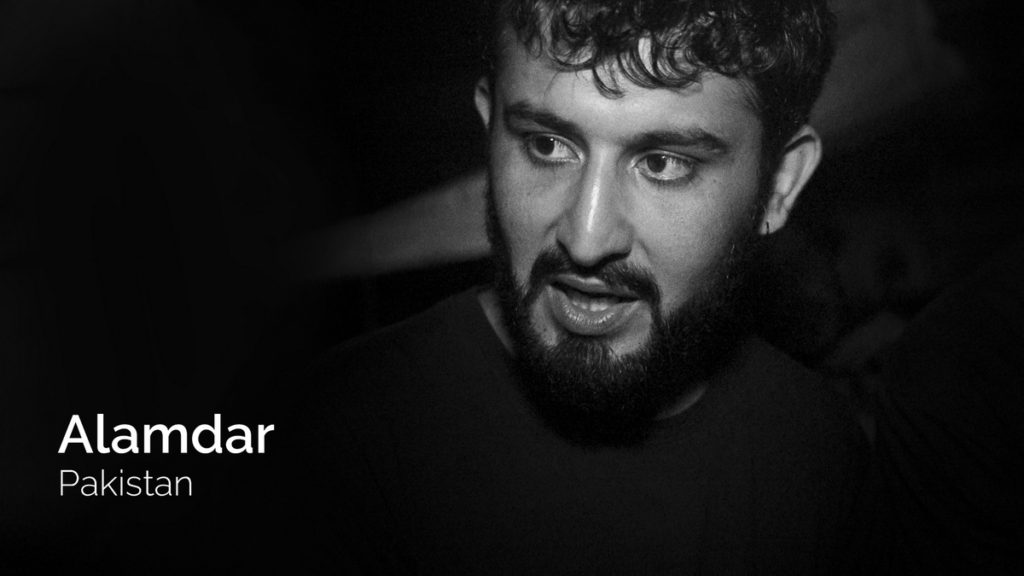
indieactivity : Why was it important for you to share this story?
Angus McDonald : It was very important for me to share this story because as a country, we have lost our way and at a political level, we have begun to forget the importance of helping the most vulnerable people among us. Allowing that to flourish is dangerous because it flows down into our everyday cultural life in ways that are not always obvious but impact our sense of values and our social cohesion in a very detrimental way. Australia has international obligations under the Refugee Convention to support and protect those who arrive seeking asylum. But more importantly, our sense of decency has always been predicated on the basis of taking care of every human being that we are responsible for. However, this policy has rapidly eroded that underpinning belief, and validated the idea that there are classes of human beings. That is a very dangerous development and we can’t let it continue.
indieactivity : How does it feel for you, for Manus to be eligible to be considered for an Oscar?
Angus McDonald : It’s mind-blowing for us to be honest. To have qualified for selection for the Oscars in the Documentary Short category is not something we ever imagined. We hope that receiving recognition like this will act to shine further light on the film and the issues it deals with so we can make some contribution to changing attitudes, not just here in Australia, but everywhere. We’re grateful and excited.
indieactivity : What is the current situation regarding the refugees on Manus Island? Has there been any change?
Angus McDonald : Recently there has been a significant change in the circumstances facing those on Manus Island. Last month, the newly elected Government of PNG demanded that the situation on Manus Island be brought to an end. Many politicians in Papua New Guinea have been uncomfortable about the situation there for a long time, including the Mayor of Manus Island. In response, the Australian government did not transfer the remaining 350 men back to Australia as many hoped.
Instead, they moved them all from Manus to the nation’s capital, Port Moresby where they have now been left. This might be seen as an improvement but in fact it is not. They are now spread around the capital under various restrictions and they continue to be denied adequate services, in particular, adequate medical care. Additionally, 53 of the men were placed in a detention facility annexed to a notorious prison complex in Port Moresby called Bomana. The men detained here have been completely isolated from outside contact for more than a month.
indieactivity : What is your main message to the refugees on Manus Island?
Angus McDonald : My main message to those who were held on Manus is to remember that they are not alone. Thousands of Australians recognize the injustice that has been perpetrated upon them for the past 6 years by the Federal Government and continue to actively seek their freedom. They are our brothers.
indieactivity : What was your first project?
Angus McDonald : This is my first project.
indieactivity : Which scene (that made the cut) was the hardest to shoot?
Angus McDonald : The original footage was shot on the ground secretly in difficult conditions over one night by Olivia Rousset. The whole process of shooting like this was extremely challenging for Olivia, particularly since the authorities would not permit her to do this if they got wind that she was there. She did an incredible job.
The most difficult scene to work on in editing the film related to the unexplained and tragically avoidable death of one of the men in 2017, Hamed Shamshiripour. He had experienced severe mental health issues for some time that were left untreated despite his pleas for help. He had threatened to take his own life several times but instead of receiving care, he had been treated with severity by the authorities. He is one of 13 preventable deaths that have taken place in offshore detention since 2013 through suicide, untreated medical conditions and murder.
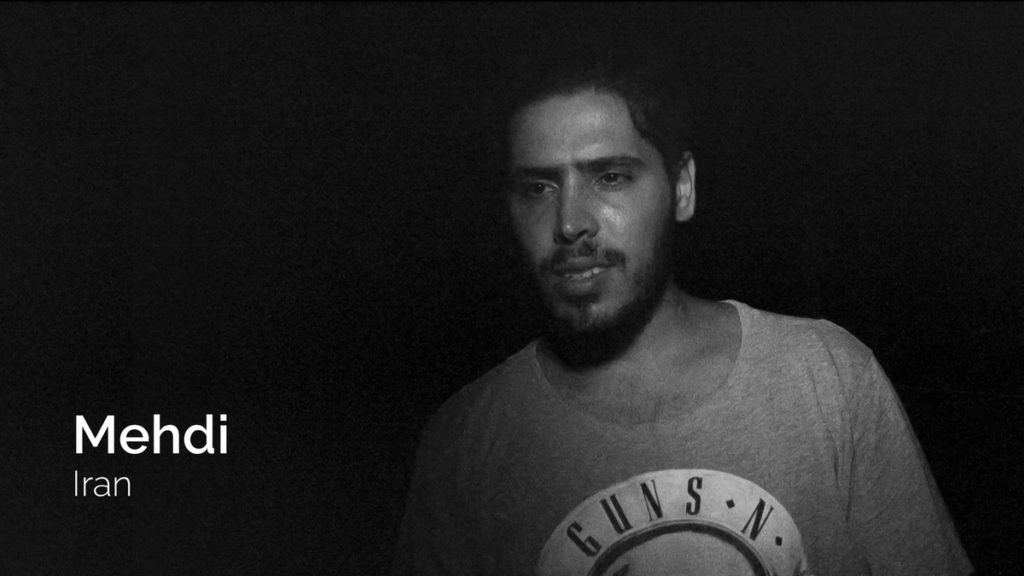
indieactivity : What worked better in this latest production that mightn’t have worked so well in the last one you did?
Angus McDonald : Letting the men speak for themselves as the basis for the entire narrative worked well in MANUS.
indieactivity : Is there anything about the independent filmmaking business that you struggle with?
Angus McDonald : Obviously, it’s challenging to craft something strong with few resources or support on an independent basis however I’m new to filmmaking and I see that as just a necessary stepping-stone in the gradual process of building my career as filmmaker.
indieactivity : Where do you think your strengths lie as a filmmaker?
Angus McDonald : I’ve been a painter for 25 years and although it wasn’t initially apparent to me how that experience would help me as a filmmaker, surprisingly, I think it has. I think I’m strong on detail and am very clear about how the shots need to be composed to create maximum visual impact. I’m very preoccupied with each frame in the same way that a painter views each painting.
indieactivity : How was the film financed?
Angus McDonald : It was self-financed.
indieactivity : What do you hope audiences get from your film?
Angus McDonald : MANUS is very raw and human. It’s a confronting subject however the men who appear in the film are sensitive, articulate and peaceful. Their unity and resilience under such brutal conditions is profoundly inspiring. I hope that viewers will feel that as well, and that the film might act as a catalyst for considering more deeply the question of how as human beings, how we should treat each other. MANUS is a film about humanity and solidarity, and I hope audiences will take those ideas away with them.
indieactivity : What else have you got in the works?
Angus McDonald : In the works right now, I’m developing a feature length documentary around the same issue of refugee protection filmed at one of the world’s largest refugee camps in the Middle East. If MANUS is shining a light on the problem, my next film project is focussing on the solution. People want hope, solutions and inspiration in the face of difficult human challenges. That is the story that this next film will tell. I’m also painting a major exhibition that will be staged in Australia next year.
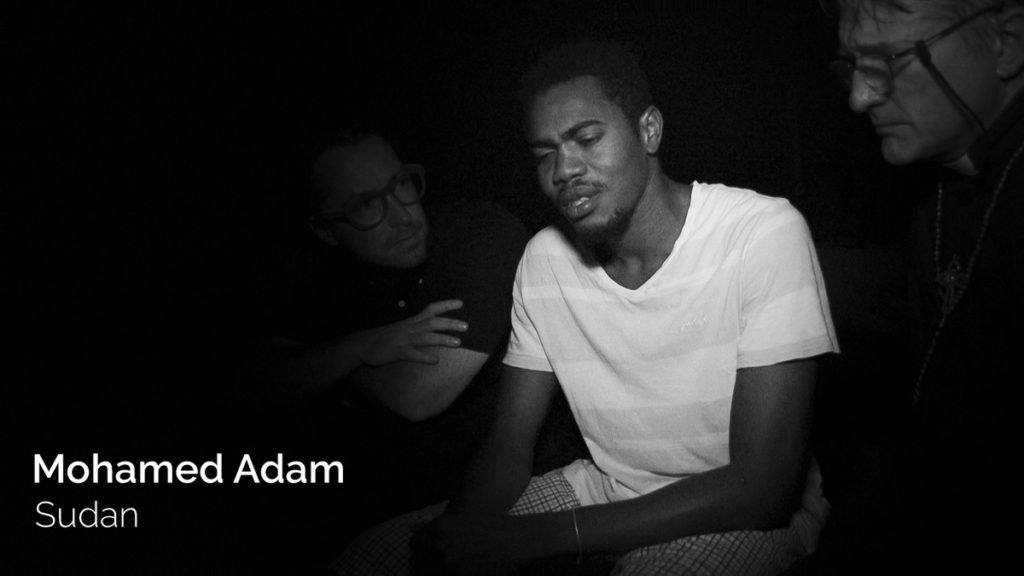
Tell us what you think of the interview with “Angus McDonald” What do you think of it? What ideas did you get? Do you have any suggestions? Or did it help you? Lets have your comments below and/or on Facebook or Instagram! Or join me on Twitter @oladapobamidele
Follow Angus McDonald on Social Media
Website
IMDb
Facebook
Twitter
Instagram
YouTube
Richard Green Documentary, ‘I Know Catherine, The Log Lady’: Premiere in NYC, LA May 9th
Lynchian Doc I Know Catherine, The Log Lady Makes Hollywood Premiere 4/17, Rollout to Follow
In Camera by Naqqash Khlalid Launch on VOD April 29
Naqqash Khlalid’s Directs Nabhan Rizwan. In Camera stars an EE BAFTA Rising Star Award Nominee.
2025 Philip K. Dick Sci-Fi Film Festival Award Winners Announced
Vanessa Ly’s Memories of the Future Awarded Best PKD Feature
Dreaming of You by Jack McCafferty Debuts VOD & DVD for April Release
Freestyle Acquires “Dreaming of You” for April 15th Release
Hello Stranger by Paul Raschid set for London Games Festival & BIFFF
The film Is set for an April 10th Premiere at The Genesis Cinema in London (LGF) and BIFFF
Daydreamers Official Trailer by Timothy Linh Bui: Released by Dark Star Pictures
Daydreamers Vietnamese Vampire Thriller – May 2nd release









